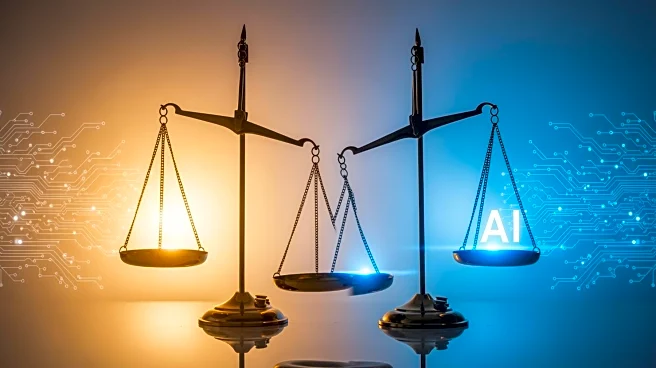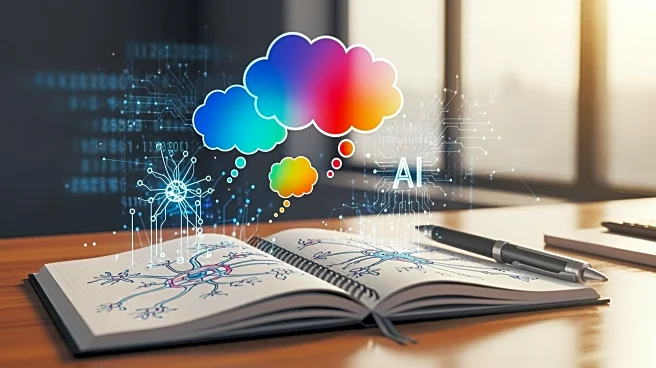What's Happening?
A study published in Nature reveals that ChatGPT's moral judgments do not align with human evaluations. Despite high correlation with human judgments, ChatGPT's ratings show significant discrepancies in direction and magnitude. The study examined ChatGPT's responses
to various moral scenarios, finding that the AI's ratings were more extreme compared to human assessments. The research highlights the limitations of AI in replicating nuanced human moral reasoning and suggests the need for further examination of AI's role in ethical decision-making.
Why It's Important?
The study raises important questions about the reliability of AI in making moral judgments, which has implications for its use in decision-making processes. As AI becomes more integrated into various sectors, understanding its limitations in ethical reasoning is crucial. The findings suggest that AI may not be suitable for tasks requiring nuanced moral evaluations, impacting industries that rely on AI for ethical decision-making. The study highlights the need for continued research and development to improve AI's ability to replicate human moral reasoning.
What's Next?
The study may prompt further research into improving AI's moral reasoning capabilities and exploring alternative approaches to ethical decision-making. Industries that rely on AI for moral evaluations may need to reassess their strategies and consider human oversight in decision-making processes. The findings could lead to discussions about the ethical implications of AI and its role in society, influencing policy and regulatory frameworks.
Beyond the Headlines
The study highlights the broader issue of AI's limitations in replicating human cognition and the challenges of integrating AI into ethical decision-making. It raises questions about the balance between AI and human judgment and the potential risks of relying on AI for moral evaluations. The focus on AI's discrepancies underscores the importance of understanding its capabilities and limitations in various contexts.













